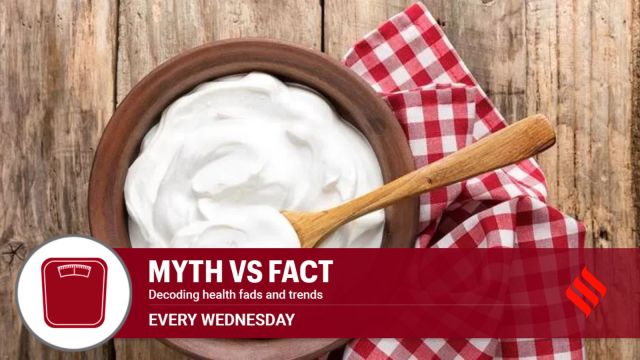The best hack for gut health: Do fermented foods make the cut?
A nutritionist busts online myths and says maintaining the gut-brain axis is a lot of hard work
 Fermented foods may contain live microbes but not all of them qualify as probiotics, which are live micro-organisms that provide specific health benefits when consumed in adequate amounts.
Fermented foods may contain live microbes but not all of them qualify as probiotics, which are live micro-organisms that provide specific health benefits when consumed in adequate amounts.If you were to scroll through online advisories on diet, you would find several recommendations for fermented food as the key tool for strengthening our gut microbes, which are crucial to developing immunity against diseases. Research has established the benefits of including such foods in our everyday diets but what nobody tells you is that not all of them have the same benefits or that some of them are dependent on the overall balanced and clean nature of your diet to yield results.
Myth: Fermented Foods Are Probiotics
Fact: Fermented foods may contain live microbes but not all of them qualify as probiotics, which are live micro-organisms that provide specific health benefits when consumed in adequate amounts. While fermented foods like yogurt, kimchi, and kombucha contain beneficial microbes, they aren’t always rich in probiotic strains such as Lactobacillus or Bifidobacterium.
Myth: Fermented Foods Cure All Gut Problems
Fact: While these foods contribute to a healthy gut microbiome, they aren’t a one-size-fits-all solution. The gut microbiome is incredibly complex and conditions like irritable bowel syndrome (IBS), Crohn’s disease and small intestinal bacterial overgrowth (SIBO) may require medical treatment beyond dietary changes. In fact, for individuals with certain conditions, such as histamine intolerance or SIBO, fermented foods might exacerbate symptoms. Always consult a healthcare provider before making significant dietary changes.
Myth: The More Fermented Foods, the Better
Fact: Fermented foods are rich in beneficial bacteria and nutrients like B vitamins and organic acids but consuming too much can cause bloating, gas and even diarrhoea in some people. This is because fermentation produces compounds like histamine and carbon dioxide, which can irritate the digestive system if consumed in excess. Start with small portions and gradually increase your intake to gauge your tolerance.
Myth: All Fermented Foods Are Created Equal
Fact: The type of fermented food and how it’s made matters. For example, kombucha and kefir contain live cultures, while sourdough bread’s beneficial microbes are typically destroyed during baking. Similarly, pickles made with vinegar are not truly fermented and don’t offer the same gut health benefits as those made through natural fermentation with salt brine. Look for terms like “live and active cultures” on the label. Homemade versions are often the most beneficial, as they avoid the pasteurization and additives found in some store-bought options.
Myth 5: Fermented Foods Are Only Good for Gut Health
Fact: They can benefit overall health, but not in isolation. They can enhance nutrient absorption, improve immune function, and even influence mood through the gut-brain axis. However, these effects are most likely when fermented foods are part of a balanced diet rich in fibre, fruits, vegetables, and whole grains.
(Kanika Narang is nutritionist at Apollo Hospital, Delhi)



- 01
- 02
- 03
- 04
- 05




























